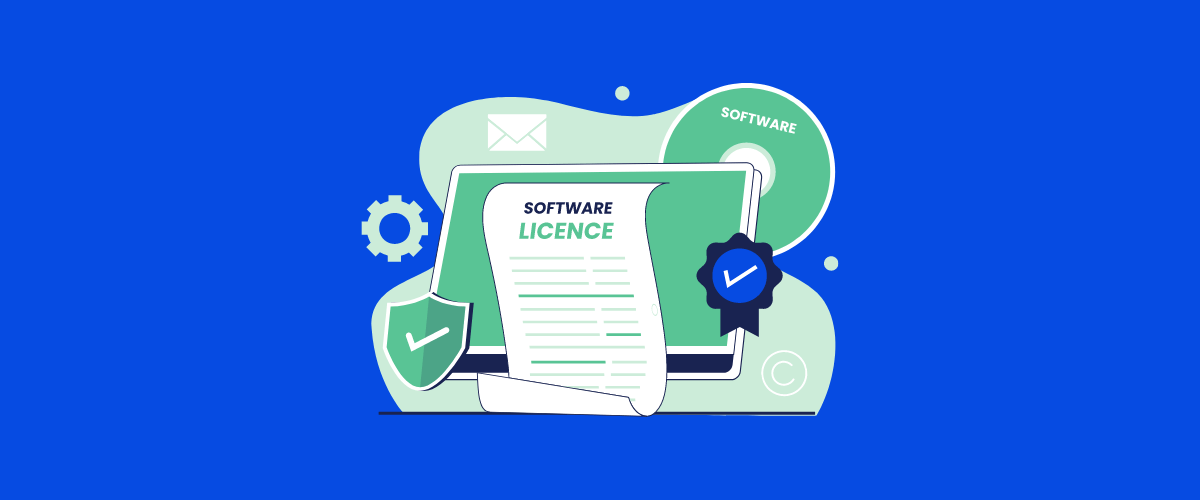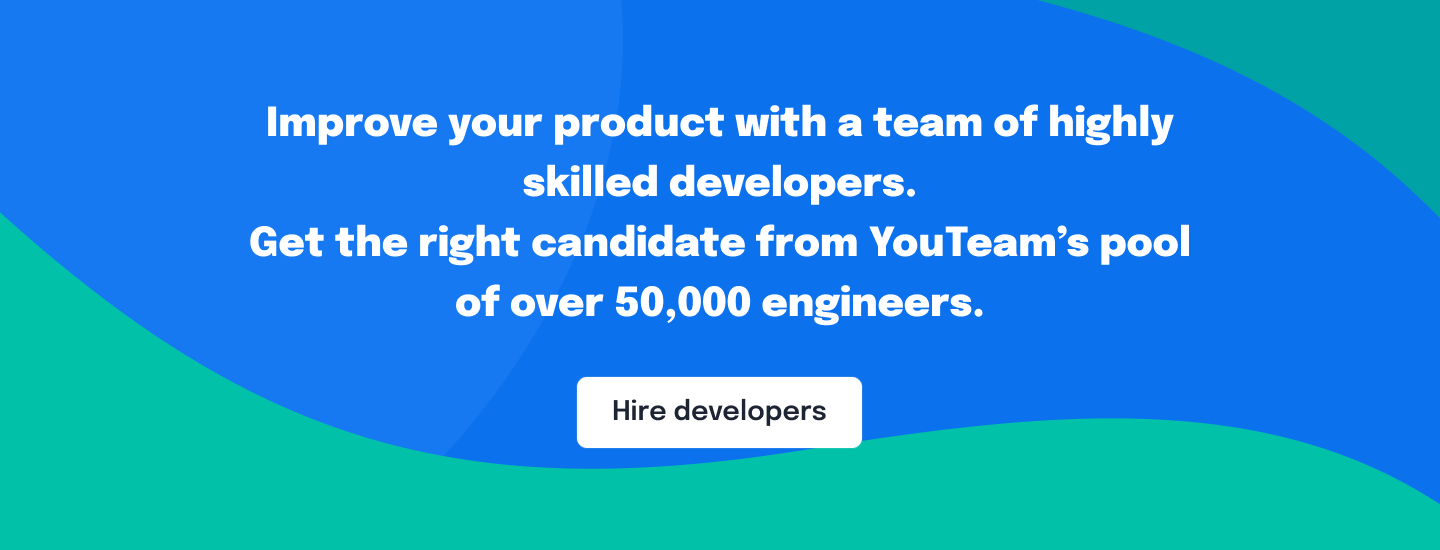Developing software that keeps up with the latest trends takes time, money, and effort. After work is finished, the last thing you want to find is that your software has been pirated. Sadly, however, this is an all too common problem for developers.
More troubling, is that the issue isn’t going away. In fact, a study has recorded a 9.6% increase in software piracy in the last year. To protect against this problem, developers need to embrace strong licensing.
But how can licensing protect your software, and what are the different types of licenses? We’ll discuss that, and more, in this article.
Table of Contents
What is software licensing?
A software license lays out exactly what a user can do with your software. Effective licensing will list the responsibilities of each party. Before compiling any licensing, a developer should ask themselves some important questions. These include:
- Do you want restrictions on the way users can distribute your software?
- Are there restrictions on usage, for example, are users permitted to alter source code?
- How many times can a user install your software? Do you want to set a limit on the number of concurrent uses?
Answering important questions is key preparation before drafting licensing arrangements. You’ll need to think about the aspects of software use that are important to your business. If you’re developing software for a client, you’ll likely need a business to business contract template. This helps to ensure that both parties are on the same page.
When this process is complete, it’s time to decide on a license type. We’ll talk more about this later. But first, let’s look a bit more at the role that licensing plays.
Why software licensing is important
Licensing is not only desirable, it is usually a legal necessity. It’s illegal for anyone to install software that hasn’t first been licensed. Of course, alongside legal obligations, there are many other reasons why licensing is important. We’ll explore some of these reasons below.
It offers legal protection to your company
The idea of a lawsuit is something that all software developers fear. Not only can legal action be very costly, it also takes up valuable time. More importantly, still, it damages your reputation. Using licensing as well as the right business structure, such as a limited liability company (LLC), you can protect yourself legally, minimize personal liability, and mitigate some of these risks.icensing offers legal protection, limiting your liability and reducing some of these effects.
Monetize your software
After devoting long hours to software development, you’ll want to see rewards for your efforts. A license allows you to monetize your work. Users first need to obtain a license before they can access your software.
More flexibility for customers
Customers want software that facilitates the needs of the modern world. In other words, software that is accessible from different devices and working environments. Licensing can provide the flexibility that customers need.
Types of software licenses
There are five different forms of software licenses to choose from. Each one addresses different needs. When drawing up your software requirements specification, it’s worth considering which license you will choose. Let’s look at the types of licenses in more detail.
Commercial license
As the name suggests, this license applies to any software that can be purchased, either physically, or used via a license. A commercial license follows the propriety model. This is an ownership model that provides more flexibility toward usage and development. Users are not restricted to the terms of an open-source license.
Permissive license
This is one of two key license types that relate to open-source software. Under this agreement, a user is not obligated to share changes that have been made to the source code of the software. But if they choose to distribute altered software, they should include the original copyright notice and a copy of the license text.
Copyleft license
This is the second type of license relating to open-source software. Unlike a permissive license, a user must make source code changes publicly available. Once again, they should include the original copyright notice and a copy of the license text when distributing.
Dual license
A dual license allows developers to make the most of both open-source and proprietary models. A single piece of software could then be licensed in two different ways depending on the needs of the user.
For example, one user may wish to develop software and distribute it commercially. Another user may simply want to use the software or incorporate it into another product. In the latter case, the user is subject to the provisions of the open-source license.
Public domain
Software that is in the public domain comes with no restrictions. A user is free to use, alter and distribute software. They have no requirement to pay a creator, nor do they have any other liability to them.
How licensing protects your software
It is enforceable
One of the worst aspects of digital piracy is that it can occur at any time. Luckily, licensing is enforceable from the date of payment until the agreed end-of-use date. You can take action as soon as you detect someone using your software against the terms of licensing.
But once piracy is detected, what steps should you take? Generally, you’ll begin by sending a Digital Millennium Copyright Act notice. This is generally known simply as a DMCA notice.
This notifies a user of any infringements and states that legal action will be taken if the content isn’t removed. Thousands of DMCA notices are sent every month. In the second half of 2021, over 146 thousand notices were recorded.
Filing a DMCA notice
There are three steps to sending a DMCA notice, as outlined below.
- Link to content – The first step is simply to provide a link to the infringing content.
- Source URL – Where was the stolen content sourced from? Be sure to provide a link to the original download link of your software. Provide the original address even if the content has since been moved to a new location. You need to provide as much relevant information relating to the infringement as possible.
- Describe ownership – What is the name of the content owner? When was the content originally created? Explain why the content belongs to you and how/when it was stolen. If you aren’t the content owner, you’ll need to explain why you have permission to file the DMCA.
It limits customer use
Without licensing, how can you control how users access your software? The simple answer, of course, is that you can’t. Relying on the goodwill of users isn’t enough to protect you from misuse.
And remember, piracy can cost you a great deal of money. For example, customers could copy your software across multiple devices or share it with many users but only pay once. Licensing enables you to lay out the allowed usage in clear terms.
A license means that a user must sign up to your terms and conditions before using your software.
Shape around your needs
One of the best aspects of a license agreement is that you can adjust it to include specific provisions needed by your business. You might, for instance, include a waiver to give certain users additional rights or access to your software (waiver templates can help in this scenario).
This includes outlining exactly how your software can be used, developed or sold. For example, you might include terms around the resale of software or its incorporation into other software products.
Cancel agreements at any time
Licensing also provides a ‘get out clause’ should you wish to cancel your services. You can include a section in your agreement that allows you to cancel at any time, without reason.
Should a user dispute a cancellation, you can simply remind them of licensing agreements. But cancelation isn’t your only option. Licensing can also give you the power to suspend an agreement, should you need to.
Complete control
The flexibility provided by licensing provides complete control over your software. We’ve explored some of the reasons for this. You can limit customer use, and restrict the risk of wrongdoing. You can shape agreements around your needs, and revoke or suspend licensing whenever you need.
Above all, licensing is enforceable and can swiftly deal with any infringements that you detect.
Conclusion
Software piracy is a constant threat to software developers. In a single year, 182 billion visits to piracy websites were recorded. The more you delay protection, the more vulnerable you will be to piracy.
Software licensing effectively builds a wall around your software. You might not be able to remove piracy completely but you can ensure that users sign up for your terms. It will give you a legal framework in which to take action on any infringements. This is a key step in protecting your intellectual property and reducing piracy-related concerns.
Of course, licensing is only effective if it is handled correctly. Take time to consider the important elements in your document. Consider any goals you have for your software, and build your licensing around them. It’s important, too, that you choose the right form of licensing. Above all, be sure to invest in legal assistance to make sure that your documentation is watertight.
There are certain aspects of software development that are common sense. You wouldn’t, for example, begin work before signing a software development agreement. Make sure you apply this same logic to licensing.







